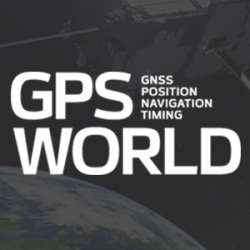
New Organization Advocates for GPS Industry
February 25, 2013
A new group, the GPS Innovation Alliance, has formed and announced itself as the voice of the U.S. […]
Read More

A new group, the GPS Innovation Alliance, has formed and announced itself as the voice of the U.S. […]

New Technology, New Applications, New Science from the Stanford Symposium By James D. Litton The sixth annual Stanford […]

Beating up the backstretch neck and neck, tied for third in the GNSS race, Galileo and Compass today […]

At the magazine’s annual Leadership Dinner, held during the ION-GNSS Conference, we gave the first GNSS Leadership Awards […]

The 2007 action film of that name concerns a domestic criminal plot, disguised as a terrorist attack upon U.S. infrastructure: an Internet-based hack into Federal Bureau of Investigation computers, the transportation infrastructure, the stock market, national video broadcast channels, the utility power grid, the National Security Agency, and the Department of Defense nerve center. One of the film’s two heroes recognizes this as a fire sale, an attack upon the nation’s computer controls, an attack in which “everything must go.”

Two British technologists backed by the U.K. Ministry of Defense have filed patents on the future interoperable GPS and Galileo signal designs that severely disrupt modernization plans for both systems and suddenly, unexpectedly place receiver manufacturers in a highly uncertain and unfavorable situation. Some of the patents have been granted in the U.K. and in Europe, and applications are pending in U.S. patent court, with a ruling expected at any time.

This month we present a guest column by James D. Litton, who attended the 2012 GPS Partnership Council, jointly sponsored by the Armed Forces Communication and Electronics Association and the U.S. Air Force GPS Directorate. The key topic of this year’s council quickly emerged as the tension between commercial off-the-shelf GPS receivers and official military issue; the two are used side-by-side in active military theaters.

GDANSK, POLAND — Poland has emerged as a regional leader for Eastern Europe. Among all European countries, it ranks fourth in population and ninth in the size of its national economy. This year, the European Navigation Conference (ENC), which rotates each year to a different host country, has convened in Gdansk, Poland — its first time in Eastern Europe.
© 2025 North Coast Media LLC, All Rights Reserved.

Follow Us